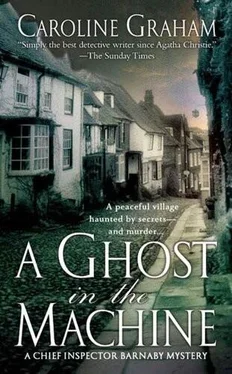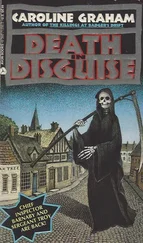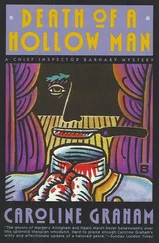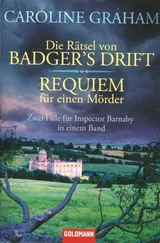“Oh, Roy.” She turned a radiant face towards him, seizing his hand. “Look, look! It’s Barbie.”
So then they had to spend the next half-hour trying to decide which Barbie. Horse riding Barbie, film star Barbie, nurse or secretary Barbie, Barbie on holiday, concert pianist Barbie. Then there was all Barbie’s gear. For a doll she certainly knew how to stack it up.
After Roy had paid again (for Barbie the Astronaut) they went into the cafeteria and had warm sausage rolls and chips and Coke. It was Saturday and very busy. Everywhere there were families and Roy proudly took his place among them. He listened to how the parents talked to the children. It mostly seemed to be nagging. Look at the mess you’ve made. Stop kicking that chair. Leave her crisps alone—you’ve had yours. Put that purse down. Now look what you’ve done.
“Karen, don’t spill that drink.”
“I’m not.”
“And finish your chips before they get cold.”
“You finish your chips.”
“Don’t be so cheeky.”
“Don’t keep on at me then.”
“I’m in charge here,” said Roy. Then, “What’s so funny?”
The interior of the Church of the Near at Hand was appropriately dark on the Sunday following Ava’s death. The yews seemed denser than ever. Alive, like Rackham trees in a wild wood, they pressed together, holding back the sun’s rays. Inside, the lights had been switched on but were powered only by opaque sixty-watt bulbs, giving a pale, sickly glow.
George was in a strange mood. Everyone commented on it. He wore a nicely brushed black suit and looked reliably sombre but was very much on the twitchy side. It was as if, one parishioner said, underneath the expression on his face there was a different expression struggling to get out.
Mediumship was not on offer. They were here to commemorate the life of Ava Garret, now passed to spirit, though the reason and actual manner of this passing remained as yet unclear. Murmurings among the congregation had indicated an approval of this situation. Ava was so very far from being an ordinary person that it seemed only right and proper that her demise should be mysterious. The meeting opened with a rumbustious rendering of “Amazing Grace” as George took to the platform.
“Welcome to you all. Cheerfulness breaks in, dear companions, even at a moment of great solemnity for I have just received a message from my Assyrian guide. It appears that our late friend and healer has already linked up with Zacharia, her elemental counterpart.” Scattered applause. “Absorbed into the great firmament of light and love and abiding in crystal caves the great halls of learning will now open unto them. Transfigured henceforth they will live for all time.” George paused for a moment, a thin black bird cocking its head, alert, waiting. “Hamarchis has also been asked to send blessings to you from the Great Designer of all that was and is and ever shall be.”
Everyone sang: “Oh, great spirit. Earth, sun, sky and sea, You are inside and all around me…”
George had asked earlier for a corporate eulogy, not trusting himself to handle the matter in person without breaking down. Grateful recipients of Ava’s consoling ministry stood up in turn to recollect their own specific condolence and generally praise her gifts. This took quite a long time. However, an observant listener might have noticed that only Ava’s psychic skills were praised. No comment was passed on her qualities as a human being, mainly because no one at the Church of the Near at Hand could stand the sight of her.
As the final musical tribute: “Love is the reason for living,” came to an end, George Footscray, by now quite overcome with some indefinable emotion, pressed a handkerchief to his face, hurried from the platform and almost ran up the centre aisle, waving away concerned gestures and crying, “Tea…tea…”
Although no specific appeal had been made for donations, in Ava’s memory a largish cardboard box covered with silver foil was prominent in the Doris Stokes suite among the sandwiches roulade and assorted cakes and pastries. A stuck-on label read: “Funeral Expenses” and most people put something through the slit in the lid. Doris slipped in ten pounds, though what Ernest would have said if he’d known didn’t bear thinking of. Really, she did it for Karen.
Then she mingled and was not surprised to find the conversation generally leaning towards speculation and disappointment. There were a lot of “if only’s” and “I wonder who’s.” Ava’s amazing revelations regarding Dennis Brinkley’s death the previous Sunday, though uncomfortably received at the time, had subsequently generated an atmosphere of high drama. The newspaper headlines and radio interview fanned this excitable flame. The presence of television cameras on the big day had become a foregone conclusion. People definitely had something to look forward to. No one doubted Ava’s promise that the guilty would be described in such detail they would be caught bang to rights within the hour. Equally no one now put into words the thought – perhaps that’s why she died.
Sharing a plate of marzipan doughnuts with Mrs. Gobbett, keeper of the keys and flower rota – each week all arrangements had to be dusted – Doris put her own lesser anxiety into words.
“I didn’t like the look of George, early on.”
“He thought the world of her. It’s only natural.”
“Who d’you think’ll take Ava’s place?”
“They’ll transfer somebody. Otherwise it’ll be down to him.”
Both women pondered this idea in silence. George’s mediumship was erratic, to say the least. Sometimes he was fine. Others he could be so uninspired you could sit through the whole service without hearing from a living soul. And he could be irresponsible. Once he’d brought up and named a man who was on holiday at the time in Cromer and had been threatened with a solicitor’s letter.
“Do you know what arrangements have been made, Alma? Regarding the funeral?”
“They reckon her earthly shell’s still sub judice,” explained Mrs. Gobbett, “because of the police.”
“It’s just – they cost so much money. What’s in that box won’t come anywhere near.”
“She should’ve joined the SNU. We’d’ve looked after her.”
“George said she wouldn’t pay the sub.”
“Who’s sorry now?” asked Alma with regrettable satisfaction. “I saw little Karen this morning.”
“What – in the village?”
On hearing that was indeed the case Doris gathered up her things and hurried away. As she passed the gents’ in the vestibule she heard a strange choking sound followed by some bubbling chortles. These were muffled as if strained through a sort of gag or padding. Then a single squawking cackle broke free and was quickly stifled.
Doris hesitated. Was someone ill in there? Were they telling funny stories? It seemed an inappropriate occasion. An inappropriate place too, come to that. Could they be having a fit? One thing was certain, someone else would have to deal with it. Doris had never been in a gents’ toilet in her life and had no intention of starting now.
Roy was sanding the walls in Karen’s bedroom when there was a knock on the front door. Immediately frightened, he knew it must be them. All that they stood for, all they had put him through, flooded his mind. He had to grip the ladder not to fall. They might be different people now but they were still the social. The ones with the power to tear everything apart. Hatred bubbled into the fear, so strong it almost made him sick. All this took only a few seconds but it was long enough for Karen to open the door. He heard her talking to someone, then she called his name up the stairs.
Roy struggled to pull himself together. He had done nothing wrong. Not only had he done nothing wrong he had done everything right. He was seventeen now, with a job where he turned up on time and behaved himself. In the present emergency he was looking after things the best way he knew how. And anyway, what could they do to him that they hadn’t done already? So when Roy finally braced himself and got downstairs it was a bit of a setback to find only Mrs. Crudge from the church.
Читать дальше










